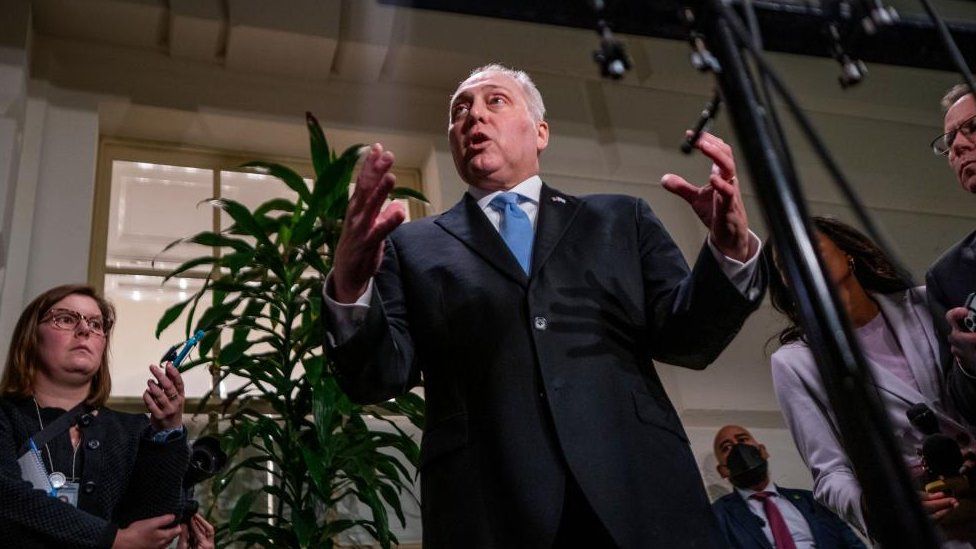-

-
-
Loading

Loading

Steve Scalise, who was chosen as the Republican party's nominee for Speaker of the House of Representatives, is facing significant challenges in securing the job. Despite beating his rival Jim Jordan, Scalise has seen his support decline due to infighting among House Republicans. He currently lacks the majority needed in the full House to become Speaker, leaving a leadership vacuum and hindering the functioning of the lower chamber of Congress. Scalise is facing issues similar to former Speaker Kevin McCarthy, who was overthrown last week. To secure the necessary votes, Scalise needs the support of 217 out of 221 Republican representatives, but a growing number have stated they will not vote for him. Reasons for opposition range from concerns about his spending bill plans to past involvement with the Ku Klux Klan. Some Representatives are against the status quo and refuse to support him. Although Scalise's support continues to grow, there are doubts that he will be able to sway the holdouts. An alternative proposal involves giving temporary additional powers to the House's acting Speaker, Patrick McHenry, to avoid a government shutdown while a long-term solution is found. Another option would be for Republicans to agree on a consensus Republican candidate with the Democrats, but this would require concessions and changes to certain rules. Democratic lawmakers have expressed readiness to find bipartisan common ground, but it remains uncertain if this option has enough support among Republicans. The absence of a Speaker at this crucial time prevents the House from passing bills and approving emergency aid requests. It also hampers the passing of spending bills, potentially leading to a government shutdown. A solution is unlikely until early next week, and what that solution will be remains uncertain.